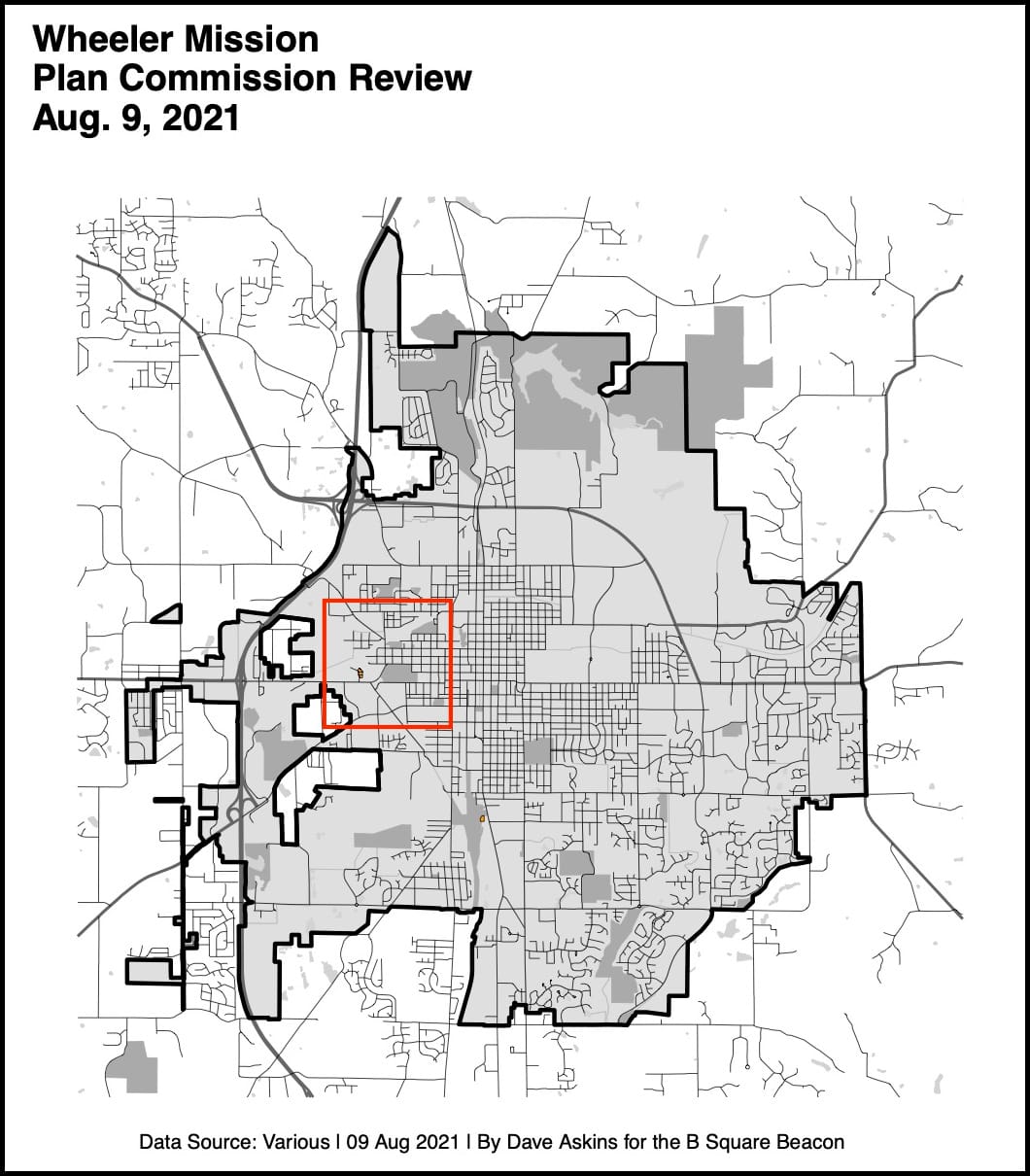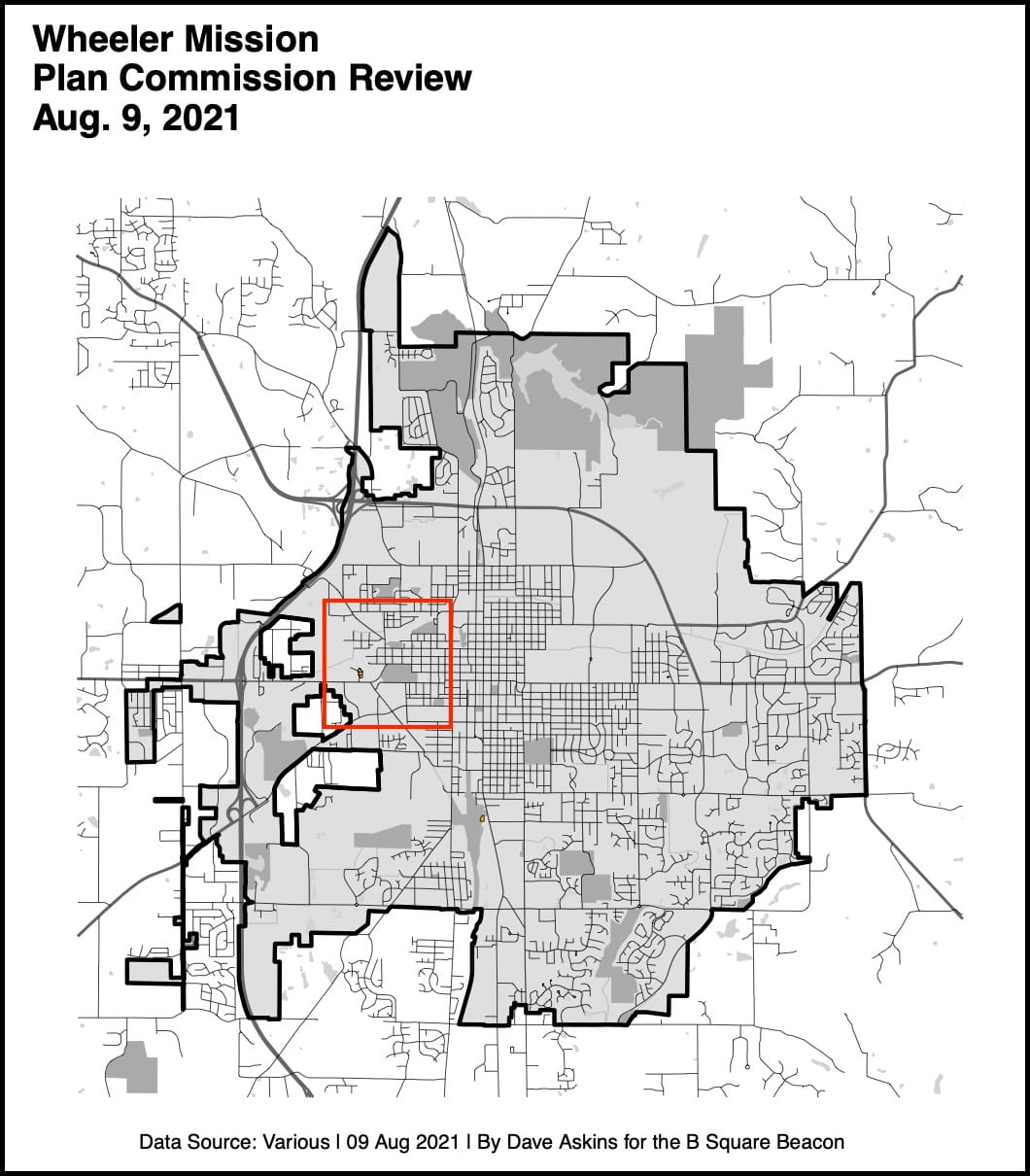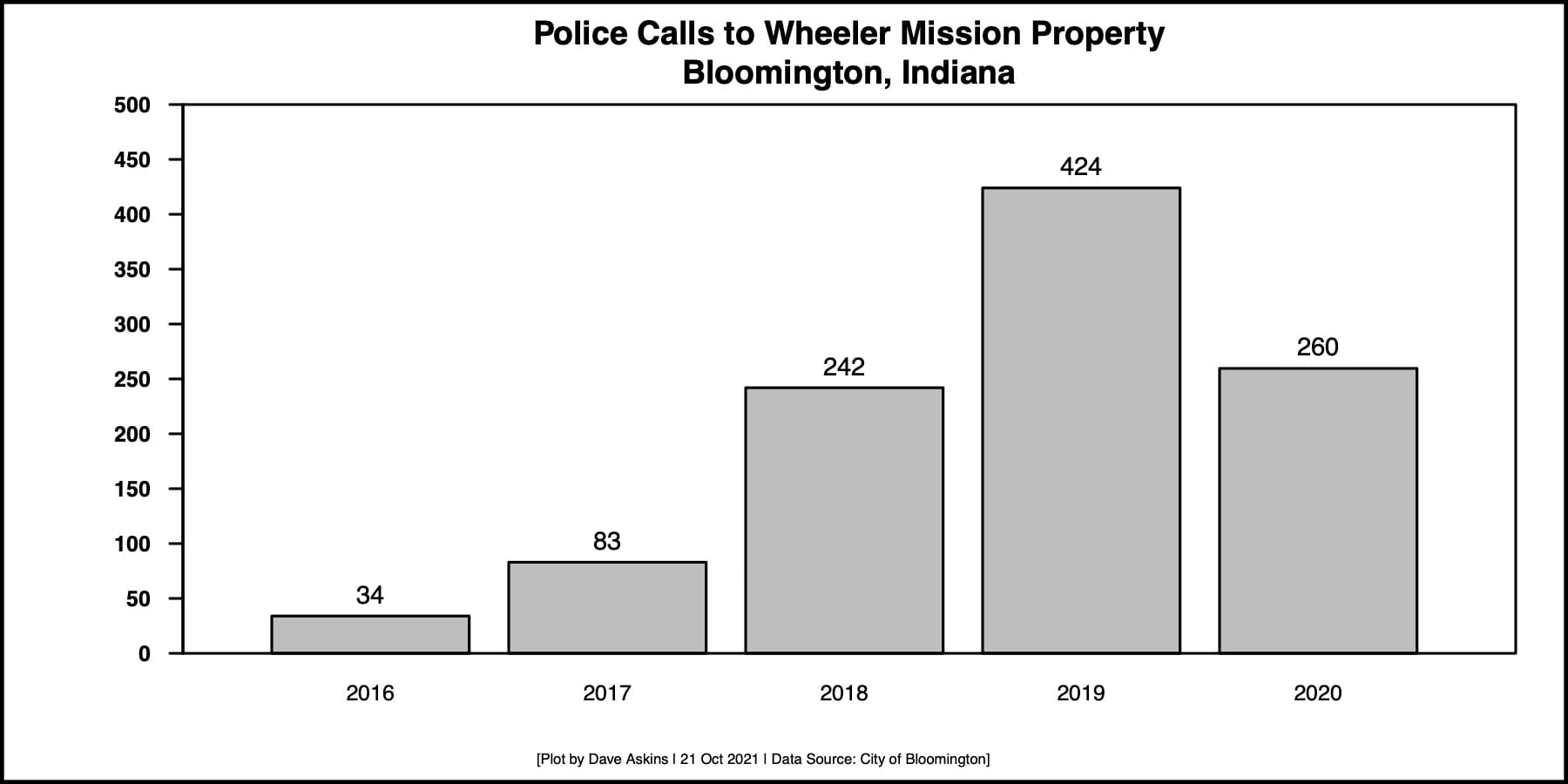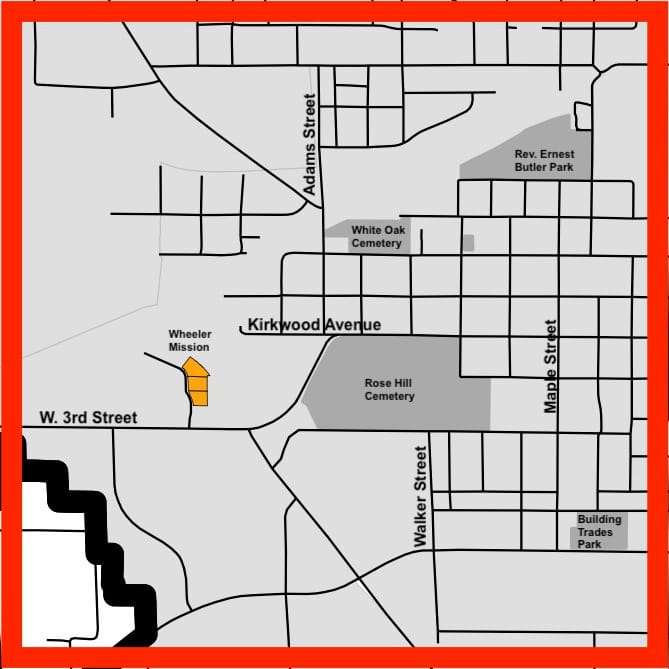OK’d by Bloomington city council: Wheeler Mission rezone for program expansion, not bed number increase




On a unanimous vote Wednesday night, Bloomington’s city council approved a rezone for a property owned by Wheeler Mission, so that its shelter beds can be shifted to a parcel that the nonprofit acquired in May of this year.
In zoning district terms, the rezone is from mixed-use employment (ME) to mixed-use medium scale (MM).
Wheeler Mission’s plan is not to increase its number of shelter beds beyond 130, but to expand its programs on life skills training, financial management and job readiness.
During the council’s Wednesday meeting, no public commentary was offered.
When the rezone request was heard by the plan commission and during the council’s committee meeting surrounding business owners described the impact they’ve seen from the behavior of some Wheeler Mission shelter guests.
In supporting the rezone request, councilmembers distinguished between the unacceptable behaviors exhibited by some of the shelter guests and the rezone request.
One of the planned improvements to the site that drew a question from council president Jim Sims was the reduction in impervious surface, by the elimination of unneeded parking spaces. Senior zoning planner for the city, Eric Greulich told Sims: “Asphalt by itself is not a terribly difficult thing to take out… it’s much easier than concrete.”
Prompted by a question from councilmember Dave Rollo during the council’s committee meeting on the topic, the number of police calls to the site over the years was provided in the meeting information packet.
The trend shows a clear rise from 242 calls in 2018 to 424 calls in 2019, a 75-percent increase. The 242 calls in 2018 already reflected more than a tripling of the number from 2017, which was 83.
About the number of police calls, Dana Jones, director of Wheeler Mission Ministries pointed out that not all of them stemmed from calls by local business owners who were complaining. Some of the calls were due to health emergencies or were made by a shelter guest, Jones said.
About the jump in 2019, Jones said it was the year that Wheeler Mission took over the interfaith winter shelter operation.
Pointing to the decrease in 2020 down to 2018 levels, Jones said, “We were able to get grant funding to hire a case manager to actively work on calls that were bogging down the system somewhat.” As an example of such a call, Jones gave those that are due to the chronic health conditions of some shelter guests.
Jones also talked about the way that Wheeler Mission collaborates with the city, attending the weekly meetings with the police department’s downtown resource officers and street outreach workers. Jones also said that in the time since the council’s committee meeting, he had collaborated with surrounding business owners on a “mitigation plan.”
Councilmember Sue Sgambelluri distinguished between the zoning question and the specific behaviors that surrounding property owners had complained about. The behaviors are unacceptable—both under current zoning and under the requested zoning, she said.
Sgambelluri put it like this: “Public intoxication leading to violence, or destructive behavior, or vandalism, or graffiti is not acceptable in a mixed-use employment zone, nor is it acceptable in a mixed-use medium scale.”
Sgambelluri continued, “The [zoning] change will not change what behaviors are acceptable. So that’s the differentiation for me in my head.”




Comments ()